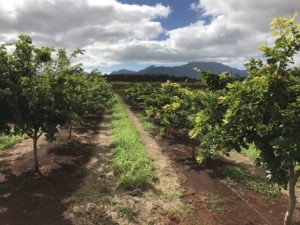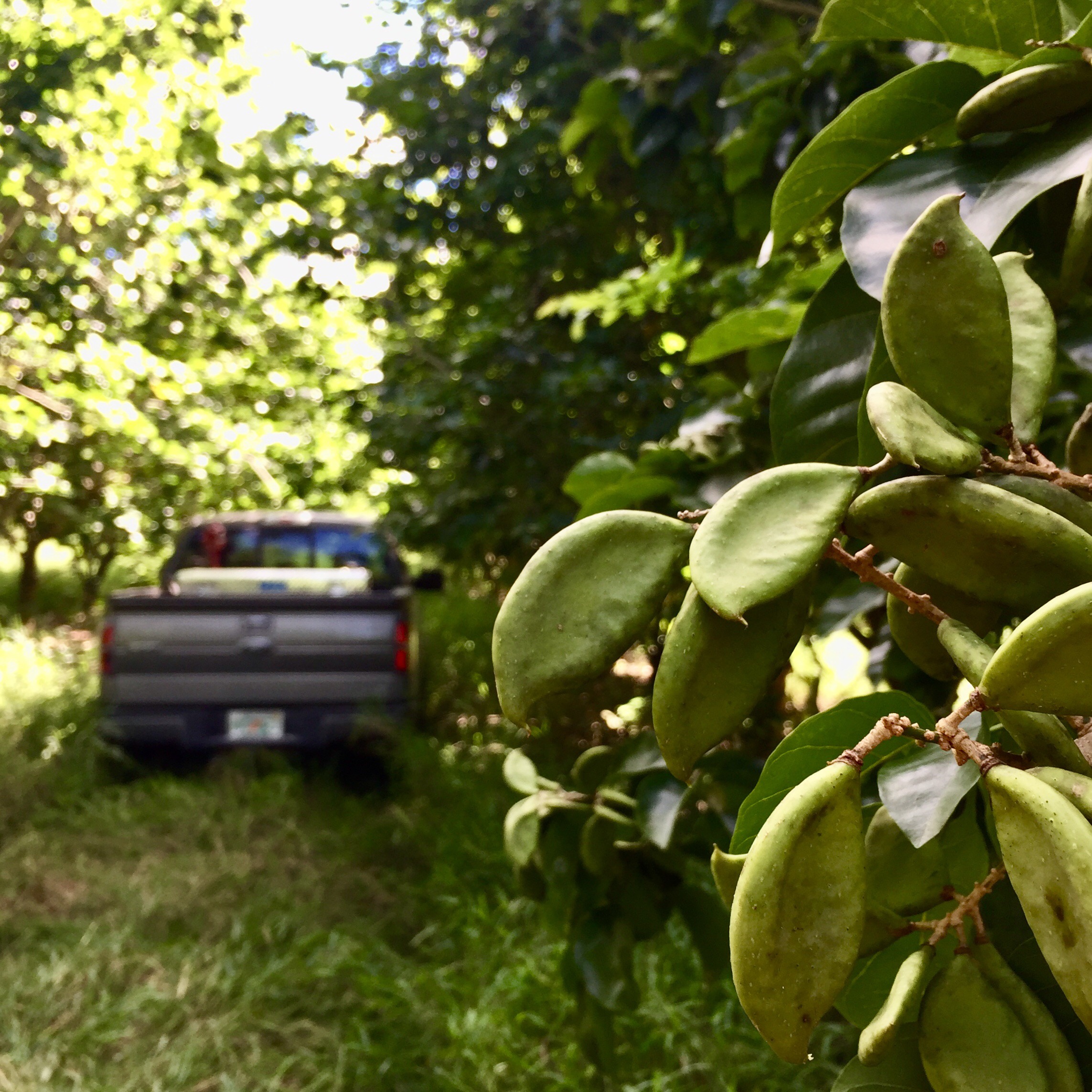As with money, protein is not known for growing on trees. But only if you haven’t heard of TerViva — a California-based agribusiness planting tens of thousands of pongamia trees in Florida and Hawaii.
According to TerViva, the pongamia tree is a protein powerhouse that far outclasses the globally dominant soybean: its yields, the team says, can offer as much as 10 times the beans per acre as soy.
It uses far less water, they say, and it has a greater resilience against soil degradation and climate fluctuations: Its thick roots let it withstand hurricanes and monsoons.
Far from hurricanes, and between nibbles of pongamia muffins at this year’s Future Food Tech Conference in San Francisco, the TerViva team revealed their expansion plans to AgFunderNews — announcing a fresh closure of Series D funding worth $20 million.
Procrastinating Pongamia
Before getting to that, AgFunderNews asked where has the pongamia been procrastinating all this time while soy has been thirstily running rampant through the world’s fields and rainforests?
Answer: India and Australia, where the pongamia produces a legume that is related to beans, peas, and lentils; it has been harvested for mostly medicinal uses for more than 1,000 years.
Its taste has long been considered too bitter for food or animal feed, the team explain. Those muffins, however, are rather sweet: since 2010 TerViva has been busy patenting, piloting and planting less bitter varieties.
TerViva has also conducted studies utilizing pongamia protein as an animal feed ingredient with poultry and cows. The team cites “promising results emerging.” Preparations are afoot for regulatory submissions with the US Food and Drug Administration (FDA).
Pongamia protein, recent research shows, has strong gelling and emulsification properties and pongamia vegetable oil is similar to high-oleic acid vegetable oils. Biofuels are an option with pongamia, the team says, though that is not their plan. The focus is simply to scale up in a way that works with existing mechanisation technologies, providing more proteins, more efficiently to a hungry planet.
“Consumption of plant-based proteins and oils is growing rapidly, but the amount of arable land to grow these crops is increasingly limited,” says Naveen Sikka, founder, and CEO of TerViva. “We’ve developed a sustainable, market-driven approach for farmers to profit off marginal land by cultivating trees that can feed the planet. We look forward to building partnerships that will incorporate our supply of highly-sustainable pongamia protein and oil as food and feed ingredients.”
Series D Brings Total to $40m
Investors have been watching their progress closely. This latest round of investment — which brings their total funding to $40 million — was led by a diversified agricultural family office, Evans Properties, The Jeremy and Hannelore Grantham Environmental Trust, and a group of Florida agricultural family offices.
They join existing investors like the Elemental Excelerator, the Yield Lab, Astia Angels, Allotrope Ventures and Howard Fischer of Gratitude Railroad.
Extra funding has allowed for the on-boarding of Jim Astwood, a former Science Fellow and Director of Food Regulatory Affairs at Monsanto; and Marc Diaz, who has led impact investing for NatureVest at The Nature Conservancy and UNICEF Bridge Fund.

Currently, TerViva has 150,000 trees under contract with existing customers that include several of the largest citrus farmers in Florida. It will use its fresh funding to deliver an additional 200,000 trees in the coming two years. As previously reported, the planting of patented varieties of the pongamia tree in Florida could herald a significant shift in the Sunshine State.
Florida Flourish
Florida may well be renowned as a leading US producer of citrus fruits, particularly its oranges.
But producers here have been grappling with a somewhat biblical set of disasters in recent years: hurricanes, outbreaks of disease, drought, and soil degradation, all of which have taken their toll on yields of oranges, lemons, and limes here. (As an aside, the state’s tomato growers are also in trouble due to a trade spat with Mexico.)
The arrival of the pongamia there could be viewed as a potential balancer for land that has fallen fallow. Rather than being viewed with suspicion, it seems TerViva has worked hard to bring major players in the citrus world onside.
TerViva’s board chairman is Ron Edwards, president and CEO of Evans Properties, Inc., and a former COO of orange juice heavyweight Tropicana. “TerViva will invest this Series D fundraising support alongside Florida’s citrus growers eager to revitalize fallow acreage and scale-up a sustainable, transparent oilseed supply chain,” he says. “This will unlock numerous applications of the company’s intellectual property growing high-performing trees and processing beans into nutritious food and feed products to meet a broad range of needs.”
The team has also been eyeing a similar opportunity in Hawaii. After nearly 200 years of sugarcane production, this all came to an end in 2016 due to competition pressures. So did the production of pineapples. Ever since, the search has been on for alternatives, and TerViva is already on the islands of Oahu, Kauai, and Maui, perhaps aided by its support from Hawaii-based Elemental Excelerator. The founders promise growers and local communities that they will benefit from a sustainable plant protein with a dramatically lower carbon footprint, and greater resilience to extreme storms, drought, and heat than annual plant proteins.
[vimeo 326581772 w=640 h=360]





